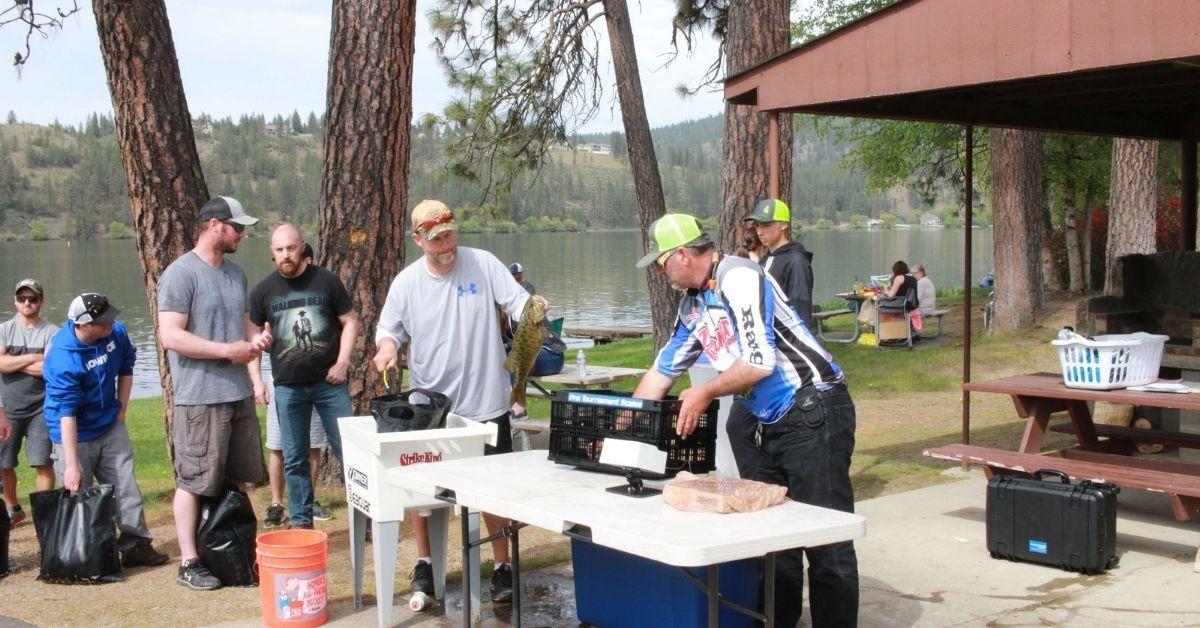Everything You Need to Know About Tournament Bass Fishing
One of the best ways to see how your fishing skills stack up against others is through tournament bass fishing. It’s a great way to mix the fun of fishing with your competitive side while trying to win money and gain some bragging rights among friends.
Tournament bass fishing isn’t brand new, but it is as popular as ever, with many different ways to get involved.
The History of Tournament Bass Fishing
Fishing derbies and other competitions have been around for ages, but the modern era of tournament bass fishing can be traced back to the late 1960s with the first-ever Bassmaster event in 1967 on Beaver Lake, Arkansas.
Since then, tournament fishing has continued to grow with local events all across North America. There are now countless organizations, large and small, that host tournaments with various formats starting at the local level and advancing to top-level professional events that can be seen online and on television.
Tournament Fishing Parameters
In the most basic form, whoever catches the most weight wins the event. Generally, most tournaments include a set limit of five fish and anglers vie to upgrade their catch through the process of culling. Once an angler has five fish, they release their smallest bass with each bigger bass caught.
The fish are weighed and the standings are based on weight caught during the event. Some tournaments are one day and others are longer, but the total weight is still the deciding factor. There are also separate prizes for the biggest bass of the day.
The exceptions to the five fish limit are tournaments with an every-catch-counts format popularized by Major League Fishing, as well as kayak tournaments that measure fish by inches instead of weighing them.
Local and Regional Tournaments
One of the easiest ways to get involved with tournament bass fishing is to join a local bass club. Most cities have at least one club and they offer members the chance to fish locally, meet new friends, and get involved at a lower cost.
High school and college fishing are two more avenues that have exploded in popularity in recent years. These events offer young anglers the chance to fish against their peers and gain valuable tournament fishing experience.
Other popular local events are team tournaments where two anglers share the boat and compete against other teams. Many team events are stand-alone “open” events, but there are also dedicated circuits where anglers fish during the season, trying to qualify for championship events at the end of the season with bigger prizes.
In addition to the options mentioned above, anglers looking to move to the regional level can enter events as either a boater or co-angler at regional events. The boaters compete against other boaters, while co-anglers (also called non-boaters) fish from the back of the boat and compete against others in the same division.
Some tournaments utilizing this format are the Phoenix Bass Fishing League, Toyota Series, and Bassmaster Opens. Each of them offers anglers the chance to advance to the next level if they succeed in their division.
A Summary of Professional Bass Fishing
Pro angler Josh Douglas weighing in his catch at a Bassmaster Open event.
At the highest level, there are multiple different circuits for professional anglers. This includes the Major League Fishing Bass Pro Tour, Bassmaster Elite Series, Tackle Warehouse Pro Circuit, and the National Professional Fishing League.
Each of the varying professional trails has its own way to qualify, but it all starts at the local level. Anglers find success close to home and then move up the ranks to be eligible for bigger and more prestigious events with higher entry fees and the potential for larger payouts.
Updated July 16th, 2021 at 5:22 AM CT


